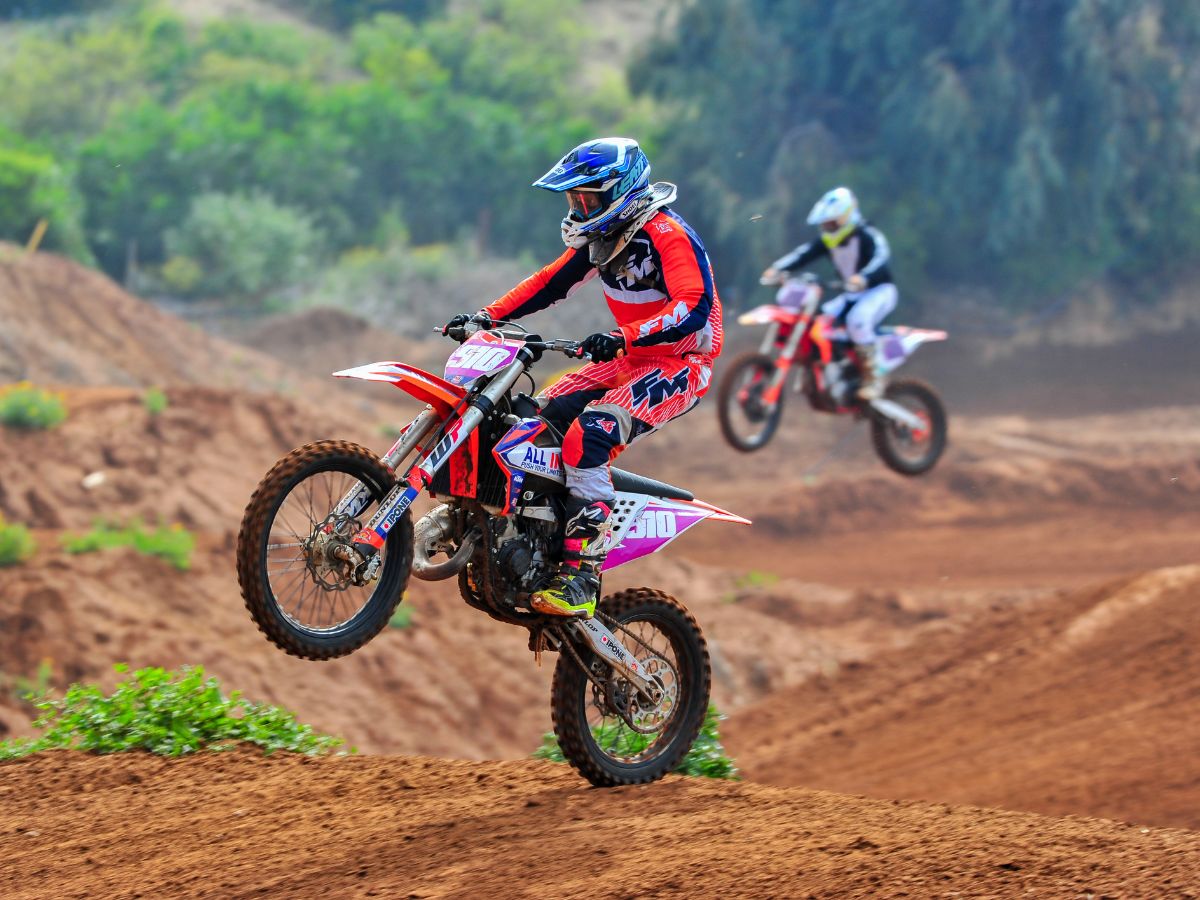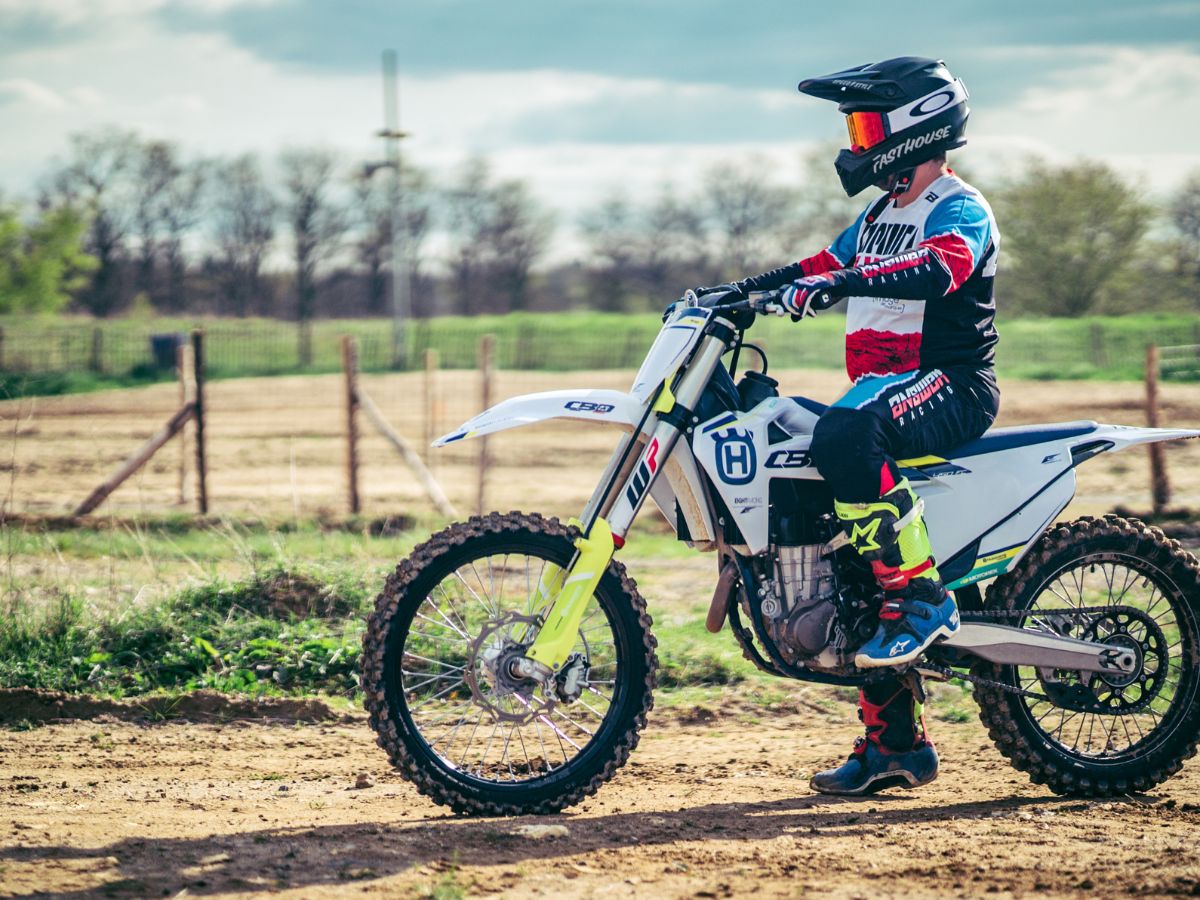In This Article Show
Having spent years navigating rugged terrains and conquering trails, I’ve come to understand and appreciate the thrill that dirt bikes bring. In my extensive journey as an off-roading expert specializing in equipment like ATVs and UTVs, I’ve often encountered a common query from both seasoned riders and enthusiastic beginners: “Do you need a license to drive a dirt bike?” Well, let’s get into it.
Dirt biking, much like its four-wheeled cousins, the ATVs, and UTVs I’ve grown fond of, is an adrenaline-pumping activity loved by many. But, as with any motorized adventure sport, it’s crucial to ensure you’re not just having fun but you’re also on the right side of the law.
And that brings us back to our central question about licensing. If you’ve ever pondered over this question or are just starting out and looking for guidance, you’re in the right place.
We’ll delve into everything you need to know, breaking it down in a straightforward and digestible manner. So, let’s gear up and set off on this informative ride together!
Dirt Bikes Licensing Requirements
Navigating through terrains on a dirt bike, ATV, or UTV, while being a joyous experience, does come with its share of responsibilities. One of the foremost being the proper licensing.
From my years of specializing in off-roading equipment and my interactions with enthusiasts, I’ve recognized a pattern of confusion and misconceptions about this very topic.

General Two-Wheeled Vehicle Licensing
Typically, any motorized two-wheeled vehicle intended for on-road use requires a valid license. This is standard for most jurisdictions. However, the type of license (motorcycle vs. regular) can vary based on the bike’s specifications and where you reside.
Dirt Bikes Specifics
On-Road vs. Off-Road
The primary distinction lies in where you intend to use your dirt bike. Many places don’t require a license if you’re riding exclusively on private lands or designated off-road trails. But, once that bike hits a public road, even for a short distance, licensing requirements often kick in.
Bike Specifications Matter
In some regions, the engine size, power output, or even the bike’s weight can dictate whether a license is necessary. For instance, smaller dirt bikes, often referred to as ‘pit bikes’ or ‘mini bikes’, might have different regulations than their full-sized counterparts.
ATVs and UTVs
The licensing of ATVs and UTVs often follows separate rules, especially since they’re primarily designed for off-road usage. However, if you intend to cross or use public roads, even briefly, you might need to have a specific license or permit, depending on the jurisdiction.

Check Local Regulations
This cannot be stressed enough. Given that I’ve had the opportunity to work with a variety of off-roading equipment, I’ve seen a wide array of regional nuances. Always consult your local Department of Motor Vehicles (DMV) or equivalent agency. They provide definitive guidelines tailored to your area.
In conclusion, while the thrill of the ride is unparalleled, ensuring you’re properly licensed is crucial. It’s a blend of safety, legality, and responsibility, all pivotal for every rider.
Reasons Behind Licensing Laws
Embarking on an off-road adventure brings with it the rush of adrenaline and a sense of freedom. However, it’s essential to understand why certain regulations, particularly licensing laws, exist for dirt bikes, ATVs, and UTVs. It’s not merely bureaucratic red tape but has concrete reasons behind it, which we’ll explore below.
Safety Concerns and Statistics
Though exhilarating, riding a dirt bike or other off-road vehicles has its risks. Accidents can occur, and without proper training, the chances of mishaps increase. Licensing processes often require some form of training or testing, ensuring that riders have the basic skills needed to handle their vehicles safely.
Protecting Riders, Pedestrians, and Other Drivers
If a dirt bike is used on public roads, even occasionally, it interacts with other vehicles. Licensing ensures that riders are aware of road rules, minimizing potential conflicts or accidents. It also protects pedestrians who might not be familiar with or expecting off-road vehicles in certain areas.
Ensuring Proper Training and Awareness
Licensing often comes with a requirement for education or awareness programs. These programs make sure riders are familiar with their vehicle’s capabilities and limitations, safe riding practices, and environmental considerations.
Environmental Considerations
Off-road vehicles can impact the environment, especially in sensitive areas. Erosion, damage to vegetation, and disturbances to wildlife are genuine concerns. Licensing can act as a tool to educate riders about minimizing their ecological footprint and adhering to designated trails.
Accountability
In the unfortunate event of an accident or an infraction, a license provides a means of accountability. Authorities can track and identify licensed riders, ensuring they adhere to laws and regulations.
In Essence 🚲
While the idea of licensing might seem like an extra layer of bureaucracy, it’s fundamentally about ensuring safety and responsibility. When riders understand the rationale behind these laws, they’re more likely to appreciate and adhere to them, resulting in a safer and more enjoyable off-roading experience for everyone involved.
Factors Determining Licensing
Licensing for dirt bikes and other off-road vehicles isn’t a one-size-fits-all situation. Several factors come into play, each with its significance, determining whether you’ll need to get a license. Let’s break down these elements:

By Country/State
Licensing regulations can vary dramatically depending on your location. Different countries, and even states within those countries, can have distinct rules based on local concerns, terrain, and the popularity of off-roading. Always start by checking the requirements specific to your region.
Bike’s Engine Size
Not all dirt bikes are created equal. A bike’s engine size can influence whether it requires a license. For instance, larger, more powerful bikes intended for on-road use might be under stricter regulations than smaller, off-road-only bikes.
Intended Use
The purpose behind your ride plays a pivotal role. If you’re participating in closed-course competitions or riding exclusively on private property, the need for a license might not apply. However, if you intend to occasionally use public roads or trails, licensing becomes crucial.
Age of the Rider
Licensing requirements often correlate with age. Younger riders, especially minors, might be subject to different rules, both more lenient (in terms of engine size) or more stringent (to ensure their safety).
Bike Specifications and Modifications
Some jurisdictions may look at other bike specs beyond engine size, such as weight, tire type, or modifications made to the bike. For instance, if you’ve modified a dirt bike to make it street-legal, it might move into a different category with different licensing needs.
Insurance and Registration
In some places, if you’re required to insure or register your dirt bike, you might also need to obtain a license, as these processes are interconnected. This ensures a layer of accountability and protection for both the rider and third parties.
In Summary 🚲
The path to determining whether you need a license for your dirt bike isn’t always straightforward. Multiple factors intersect, each adding its layer of complexity. However, being aware of these factors and doing thorough research based on your specific situation ensures that you remain compliant and can enjoy your rides without any hitches.
Alternatives and Exceptions
While the journey of understanding dirt bike licensing might seem intricate, it’s equally essential to recognize the exceptions to the rule. At times, you might find that alternatives exist or certain conditions might exempt you from needing a license. Let’s explore these scenarios:
Private Property
One of the most common exceptions is the use of dirt bikes on private property. Licensing often isn’t required if you’re riding solely on land you own or have permission to use, and you don’t traverse any public roads. However, it’s always a good practice to obtain the landowner’s permission in writing.
Designated Off-Road Trails
Many regions have trails specifically set aside for off-road vehicles, including dirt bikes. These trails are designed keeping off-roading in mind, and often, riders won’t need a license to use them. It’s always a good idea to check with the managing agency or local rules before you hit the trail.

Learning Permits or Temporary Licenses
Some areas offer learning permits or temporary licenses for those new to dirt biking and still getting the hang of it. These allow beginners to practice and get acquainted with riding without committing to a full license. Certain restrictions might be attached, like riding only during daylight hours or always having an experienced rider accompany you.
Special Events and Competitions
You might not need the typical license if you’re participating in a closed-course competition or a special event. However, event organizers often have their regulations and requirements, such as event-specific permits or insurance.
Age-Based Exceptions
In some jurisdictions, younger riders might be exempt from licensing if they’re on bikes below a specific engine size. However, age-based exceptions usually come with other rules, such as mandatory helmet use or restrictions on where they can ride.
Bike Specifics:
Some very lightweight or low-power bikes might be exempt from licensing. They fall into categories like “motorized bicycles” or “mopeds” rather than full-fledged dirt bikes.
Ensure you check the classification for your specific bike model.
It’s always paramount to remember that while these alternatives and exceptions can offer some flexibility, they don’t exempt riders from adhering to safety standards and respectful riding practices. Enjoying the thrill of dirt biking responsibly ensures your safety and the sport’s longevity.
Key Points to Remember
Dirt biking is a thrilling experience, blending the joy of freedom with the challenges of mastering rugged terrains. As we navigate the nuances of licensing and regulations, here are some vital takeaways every rider should keep top of mind:
Regional Variations
Always be aware that rules can differ significantly based on your location. Whether you’re traveling across states or countries, always check local regulations. One area’s exemption might be another’s strict requirement.
Private Property
Riding on private land usually provides an exception from licensing, but always ensure you have explicit permission from the landowner.
Safety Over Everything
Regardless of licensing, prioritize safety. Helmets, proper gear, and adhering to recommended speeds and practices can make the difference between a fun ride and an unfortunate mishap.
Stay Updated
Licensing rules aren’t set in stone. They can evolve based on new laws, safety statistics, or changes in the off-roading community’s dynamics. Regularly review your local regulations.
Consider Insurance
Even if a license isn’t required, consider getting insurance. It offers protection from potential liabilities and ensures peace of mind.
Environment Matters
Riding responsibly also means being mindful of the environment. Stick to designated trails, avoid sensitive ecosystems, and always practice “Leave No Trace” principles.
Seek Expert Advice
If ever in doubt, consult. Reach out to local off-roading clubs, associations, or legal advisors familiar with dirt bike regulations. Peer experience can be invaluable.
Licensing Equals Training
While obtaining a license might seem tedious, remember that the process equips you with valuable knowledge and skills, making you a better, more informed rider.
Enjoy Responsibly
The essence of dirt biking is enjoyment. While understanding rules and regulations is essential, always remember the core purpose – the thrill, the freedom, and the joy of the ride.
With these key points in hand, you’re better prepared to embark on your next adventure, ensuring it’s exciting, compliant, and safe.







